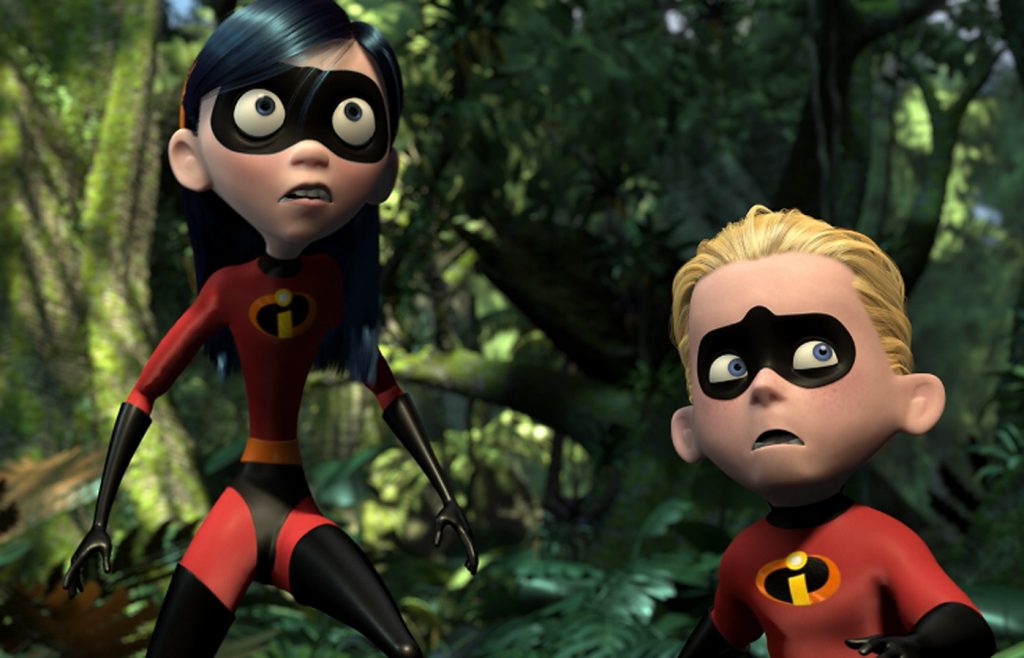
Is The Incredibles the best American animated film ever? I’m sure this will strike some as a ridiculous question. After all, how could anything top the crystalline sincerity of those early Disney films? However, Brad Bird’s The Incredibles almost can’t be compared to other animated films. Its vision is so unique, its voice-acting so mature, and its direction so cinematic and, yes, artful, that The Incredibles can be counted among the best superhero movies ever. Like the legendary genius Hayao Miyazaki (Spirited Away, Princess Mononoke), Bird views animation not as a different medium to film, but simply an extension of it on a different canvas. This perspective gives Bird’s film a near-unrivaled headiness, as his imagination soars within the stylings of long shots and quick cuts.
The Incredibles opens in the “golden age” of superheroes. Mr. Incredible, a.k.a. Bob Parr (Craig T. Nelson), on his way to some black-tie function, stops off to save a few people. He meets up with the charming and alluring Elastigirl (Holly Hunter) and his good pal Frozone, a.k.a. Lucius Best (Samuel L. Jackson). Turns out Mr. Incredible is on his way to marry Elastigirl and seemingly shine on as gods of American grandeur. But then the heroes get hit with a slew of lawsuits (people claiming they didn’t want to be saved), and soon the government enacts the Hero Relocation Program, forcing the heroes never to use their powers again.
Flash forward 15 years—Bob now works in insurance and has grown a sizeable beer gut. Elastigirl, now Helen Parr, is a stay-at-home mom who takes care of their three kids: Dash, who can run really, really fast; Violet, who can turn invisible and create a forcefield around herself; and Jack Jack, the baby, whose powers are yet unknown. Everyone in the family is secure but slightly unhappy because they have been forced into mediocrity. Then Bob gets a chance to do some independently contracted hero work that goes horribly wrong, forcing Helen and the kids to break out their new costumes and become super again.
The first thing striking about The Incredibles is the dialogue and voice acting. It isn’t dumbed down, or hyperbolic; in fact, it’s remarkably believable and assured. When Bob and Helen argue, it feels like a real fight between a married couple. Bird’s witty, snappy script, and the wonderful voice-work of Craig T. Nelson, Holly Hunter, Jason Lee, Samuel L. Jackson, and even Bird himself (as a tiny, hilarious fashionista) carry the film and give the remarkable animation a gravitas that elevates it above mere eye candy. The action in the film feels exciting, thrilling even, as the characters are actually empathetic. I was charmed by the fish and toys from Finding Nemo and Toy Story, but they are only fish and toys compared to the touching pathos of the Parr family.
With the exception of Miyazaki films (whose films should be seen by everyone), I usually don’t get all that into animation—I’m usually more diverted than enthralled. The Incredibles was different. In fact, aside from Kill Bill Vol. 2 and Sideways, it is probably the best film I’ve seen this year. More so than any hero film since the first Batman, The Incredibles finds the perfect balance between triumph and failure that is the locus of the superhero myth.
